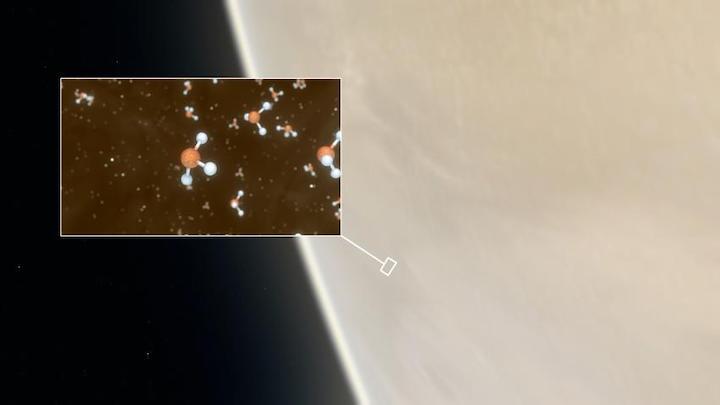19.09.2020

This year has been nothing short of a roller coaster for scientific discoveries. From identifying new species of dinosaurs to rapid vaccine development to quell a global pandemic, there were not very many journal headlines that could have been predicted in 2019. This week marked what will likely be one of the most groundbreaking astronomical findings of the year — a chemical discovery that may point toward potential life on Venus.
Scientists at the Massachusetts Institute of Technology have identified significant amounts of phosphine, a gas that is toxic to any life form that uses oxygen, in Venus’ atmosphere. It is generally found in swamps and marshes, as well as animal guts and excrements. Phosphine generally requires hydrogen and very specific conditions to form, which points to potential microbes living in the planet’s atmosphere.
Venus is one of the closer planets to the sun and undergoes extremely harsh temperature conditions, which is why it has been considered inhabitable for a long time. In the very first slide of the researcher group’s presentations, they made it very clear that they do not claim to have found life on Venus. Instead, they claim that the presence of phosphine suggests new chemistry or possible life production on the planet.
But could microbes survive Venus’ harsh environmental conditions? This gives rise to upcoming research projects, as additional observations need to be made to confirm the detection of phosphine in Venus’ atmosphere. NASA’s announcement discusses two of the next four candidate missions for their Discovery Program focused on the planet. Venus is one of the few planets that can be reached within the span of months rather than years, making potential findings more plausible within a shorter timespan.
Regardless of whether or not we find life forms on Venus or not, potentially the most significant change that this discovery may propel is the emergence of space research companies developing their own exploration projects. Private rocket companies have already expressed interest in taking a mission to Venus themselves. Rocket Lab, founded in New Zealand, have previously developed small-scale satellites, and plan to launch their own rocket missions by 2023. The lab is working independently with scientists to decide on scientific instruments the probe and spacecraft might carry, as well as confirm logistics of the trip. The laboratory could very much so be the group to confirm the presence of phosphine in the atmosphere of Venus and measure other gases.
Private companies do have the upper hand in being able to rapidly develop missions in comparison to governmental agencies such as NASA, which undergo a longer approval process to secure funding. For this reason, companies such as Rocket Lab and SpaceX may be ready to launch years earlier, and obtain results and data quicker. It is the same situation across privatized labs across all forms of science research, with industry having more money to invest in solution-oriented and highly profitable research. Although they may not have the same resources, they do have the potential to yield important conclusions to propel the future of space research.
While the discovery of phosphine in the atmosphere of Venus is certainly groundbreaking, there is no guarantee that the presence of the chemical confirms habitability or aliens on the planet. However, the news is significant as it could potentially mark the beginning of privatization of the space exploration industry, and is something to keep an eye out for as companies involved in space research begins to move towards corroborating the discovery.
Quelle: The Daily Tar Heel
